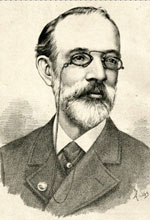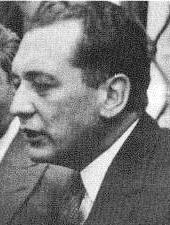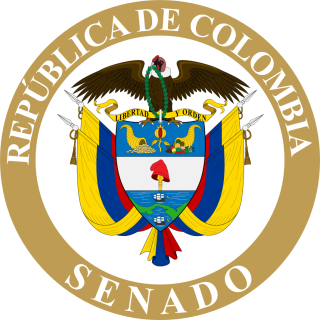
Presidential elections were held in Chile on 22 October 1925. They were the first direct elections in the country's history and the first to be held under the new 1925 constitution. The result was a victory for Emiliano Figueroa, who received 71% of the vote.

Parliamentary elections were held in Greece on 13 June [O.S. 31 May] 1915. The result was a landslide victory for Eleftherios Venizelos and his Liberal Party, winning 187 of the 316 seats in Parliament. Venizelos claimed that his win was proof that the Greek people approved his pro-Allies policy.

Parliamentary elections were held in Greece on 19 December [O.S. 6 December] 1915. They were boycotted by Eleftherios Venizelos and his party, the Liberal Party, as unconstitutional, a result of a confrontation with King Constantine I over the country's participation in World War I. Venizelos considered Greece as a close and loyal ally of the United Kingdom and France, while Constantine I, who was affiliated with the German royal family, favored neutrality.

Parliamentary elections were held in Greece on 31 March 1946. The result was a victory for the United Alignment of Nationalists, an alliance that included the People's Party, the National Liberal Party, the Reform Party, which won 206 of the 354 seats in Parliament. As a result Konstantinos Tsaldaris became Prime Minister leading a right-wing coalition. Nonetheless, he soon decided to resign in favor of Themistoklis Sophoulis, who led a government of national unity during the entire second phase of the civil war (1946–1949). One of the priorities of the new government was the proclamation of a plebiscite for the restoration of the Greek monarchy.

Parliamentary elections were held in Norway in 1891. The result was a victory for the Liberal Party, which won 63 of the 114 seats in the Storting. The Conservative Party and the Moderate Liberal Party contested the elections in an alliance, although separate lists were used in some constituencies.

Constitutional Assembly elections were held in Latvia on 17 and 18 April 1920. The Latvian Social Democratic Workers' Party emerged as the largest party, winning 57 of the 150 seats. The elections were boycotted by communist parties. The Constitutional Assembly was responsible for drafting a constitution, which was approved on 15 February and promulgated on 7 November 1922.
Parliamentary elections were held in Egypt on 21 December 1929. The result was a victory for the Wafd Party, which won 198 of the 236 seats, including 102 seats in which their candidates were returned unopposed. Four independents were also returned unopposed.

General elections were held in Macedonia on 16 October 1994 to elect a President and Assembly, with a second round of Assembly elections on 30 October. The presidential election was won by Kiro Gligorov of the Alliance for Macedonia, whilst the parties forming Alliance for Macedonia also won the Assembly elections with 95 of the 120 seats. However, the second round of the Assembly elections were boycotted by VMRO-DPMNE and the Democratic Party, as they claimed there had been irregularities in the first round.

Parliamentary elections were held in Portugal on 17 November 1895. They were boycotted by the Progressive Party and the Portuguese Republican Party, resulting in the Regeneration Party and a small number of independents winning all the seats.

General elections were held in Portugal on 28 April 1918, following a coup by Sidónio Pais in December 1917. The elections were boycotted by the Democratic Party, the Evolutionist Party and the Republican Union, who had won over 90% of the seats in the 1915 elections.

Parliamentary elections were held in Portugal on 11 May 1919. The three main parties that boycotted the 1918 elections returned to contest the elections. The result was a victory for the Democratic Party, which won 86 of the 163 seats in the House of Representatives and 36 of the 71 seats in the Senate.

Parliamentary elections were held in Portugal on 8 November 1953. The ruling National Union won all 120 seats.

Presidential elections were held in Colombia on 11 February 1934. The result was a victory for Alfonso López Pumarejo of the Liberal Party, who received 99.6% of the vote. He took office on 7 August.

Presidential elections were held in Colombia on 27 November 1949. The result was a victory for Laureano Gómez of the Conservative Party, who received all but 23 of the 1.1 million valid votes cast. The opposition Liberal Party withdrew from the election and called for a boycott after their candidate Darío Echandía was the victim of a failed assassination attempt.

Presidential elections were held in Colombia on 4 May 1958. They were the first presidential elections since 1949, following a military coup against President Laureano Gómez in 1953. Following the coup, the two main parties came to an agreement on holding office for alternating periods of four years. The agreement, known as the National Front, was approved in a 1957 referendum.

Parliamentary elections were held in Colombia on 15 March 1953 to elect the Chamber of Representatives. The Liberal Party and the Communist Party both boycotted the elections, and as a result, the seats reserved for the minority party were left vacant. The Conservative Party won the remainder.

The Republican Evolutionist Party, commonly known as the Evolutionist Party, was a political party in Portugal led by António José de Almeida.

The Republican Union Party, commonly known as the Republican Union or the Unionist Party, was a political party in Portugal.

The National Republican Party, unofficially known as the Sidonist Party after its leader Sidónio Pais, was a political party in Portugal

The Central Africa Party was a multi-racial political party in Northern Rhodesia, Nyasaland and Southern Rhodesia.


















